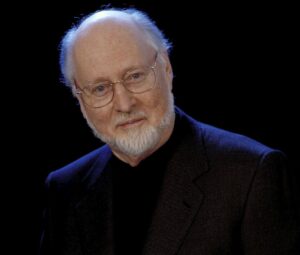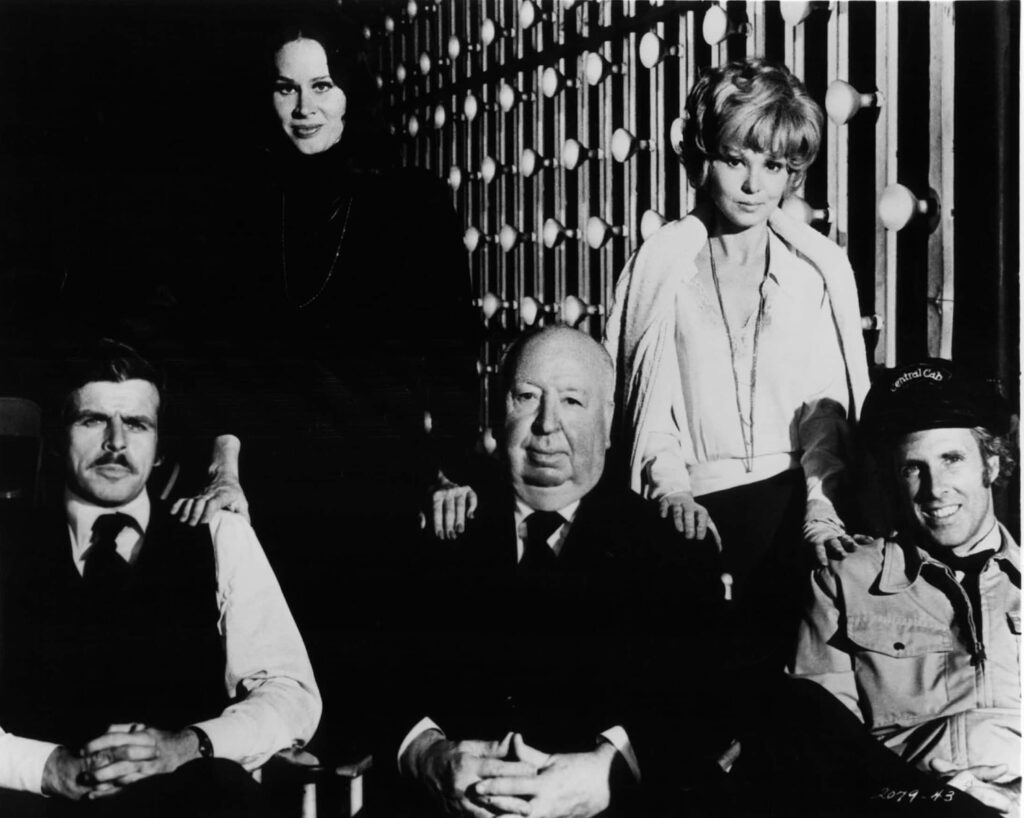By Ray Bennett
The films of Alfred Hitchcock, who was born on this day 125 years ago, are noted for their exceptional scores and it was no accident. Composer John Williams told me that the master of suspense had a wide interest in music.
Among his vast number of accomplishments, the multi-Oscar-winning American composer has the distinction of scoring Hitchcock’s final picture, ‘Family Plot’ and the first feature by one Steven Spielberg, ‘Sugarland Express’.
‘We could have another whole conversation on my relationship with Hitch because my time with him was filled with wonderful stories,’ Williams said when I interviewed him in 2000. ‘I used to have lunch with him alone and we’d talk about the film for about five minutes and then he would speak to me, knowledgeably about the state of British music. He was enormously interested in British music from between the wars … by Vaughn Williams, Benjamin Britton, William Walton and others. He knew their work and knew what was happening in British music and was greatly interested in it.
 ‘He was a man full of marvellous stories and history. It was a great experience being in his presence. He was a lover of Edward Elgar, I think, more than anything. He talked about Elgar and Gustav Holtz all the time and was very interested in Walton. Of course, he had a long relationship with Bernard Herrmann, who was a great friend of mine.’
‘He was a man full of marvellous stories and history. It was a great experience being in his presence. He was a lover of Edward Elgar, I think, more than anything. He talked about Elgar and Gustav Holtz all the time and was very interested in Walton. Of course, he had a long relationship with Bernard Herrmann, who was a great friend of mine.’
Herrman had an extraordinary collaboration with the director on eight movies including ‘Vertigo’, ‘North By Northwest’ and ‘Psycho’ with its famous stabbing violin sequences. Their last film together was ‘Marnie’ in 1964 and Hitchcock hired composer John Addison for ‘Torn Curtain’ (1966), Maurice Jarre for ‘Topaz’ (1969) and Ron Goodwin for ‘Frenzy’ (1972).
In 1976, he turned to Williams for ‘Family Plot’ starring William Devane, Karen Black, Barbara Harris and Bruce Dern (pictured with the director top).
‘The first conversation I had with Hitchcock, it was a bit sheepish on my part because of my closeness to Herrmann,’ Williams told me. ‘I didn’t feel I could accept the assignment without either talking to Herrmann or understanding why it was that Hitchcock had broken off with him, which was one of those relationships in film that we all were hoping would continue. Hitch said to me, “No, no need to be sensitive about that because Mr. Herrmann and I have agreed not to work together again. I’m sure he’ll be very happy if it’s you if it’s not going to be him.” I did ring up Herrmann and he said about the same thing. He said, “No, no, Hitch and I will not work together any longer but I am delighted that you will be doing this.”’
They got along famously. ’He was full of this kind of whimsy and wit with an ironic edge to things,’ Williams said. ‘At one of our lunches, Hitch was describing a composer he’d hired to write a score for a film about a murder. He said he went to a scoring session and the composer had every double bassoon and timpani that was capable of making an ominous sound for the score. I said that sounded as if it was close to the mark and Hitch said, “No, you don’t understand, murder can be fun.”’
John Williams, 92, earned his 54th Academy Award nomination in 2024 for ‘Indiana Jones and the Dial of Destiny’. He has won five Oscars. .Alfred Hitchcock, who died on April 29, 1980, had five Oscar nominations but no wins.

